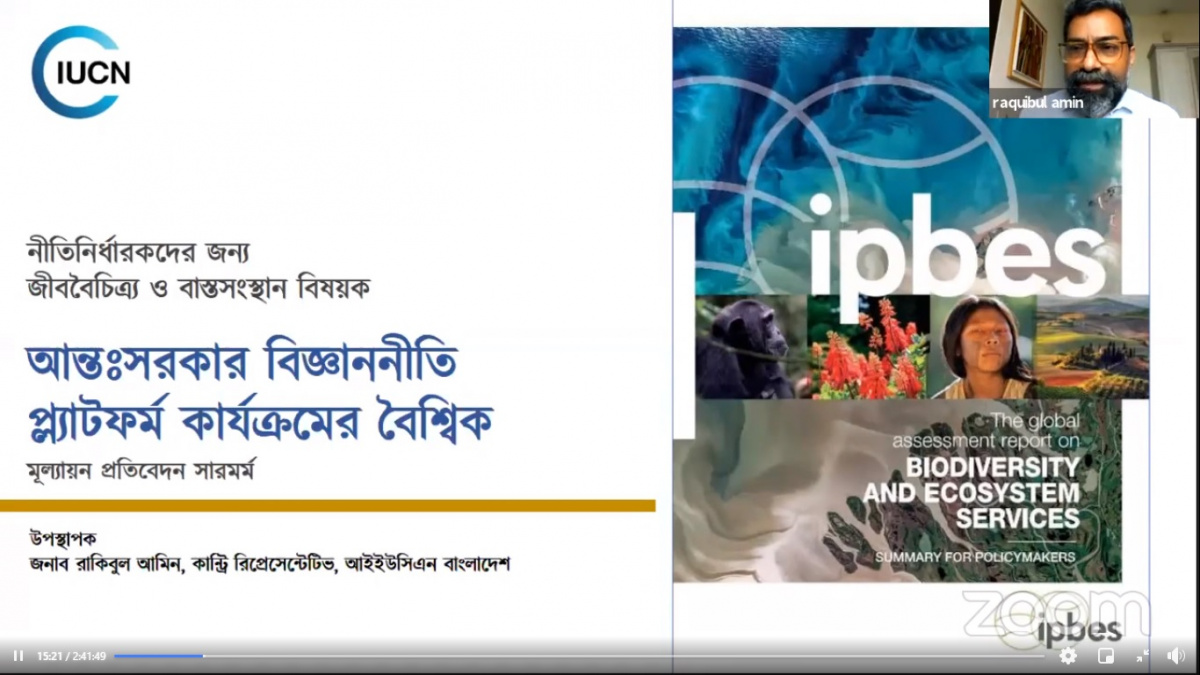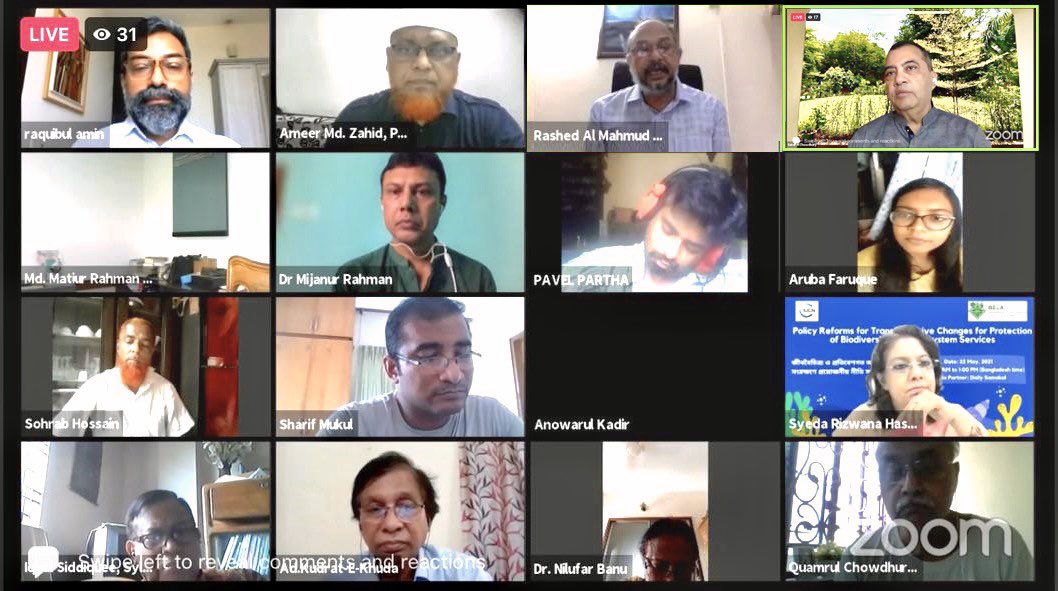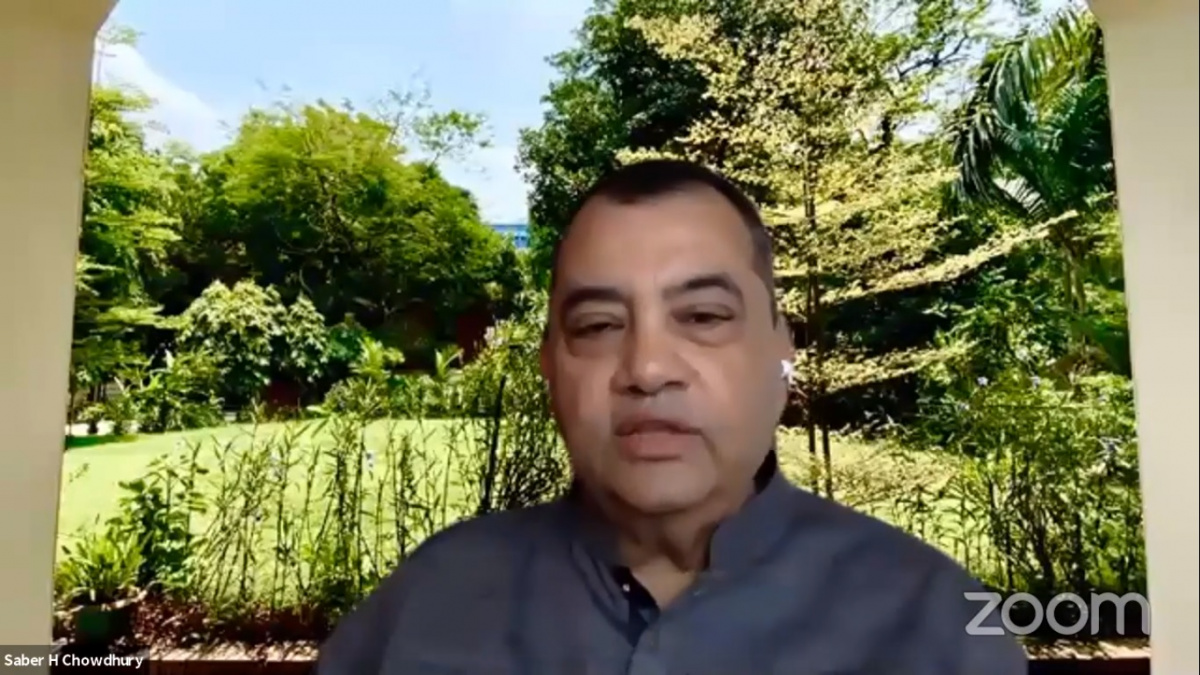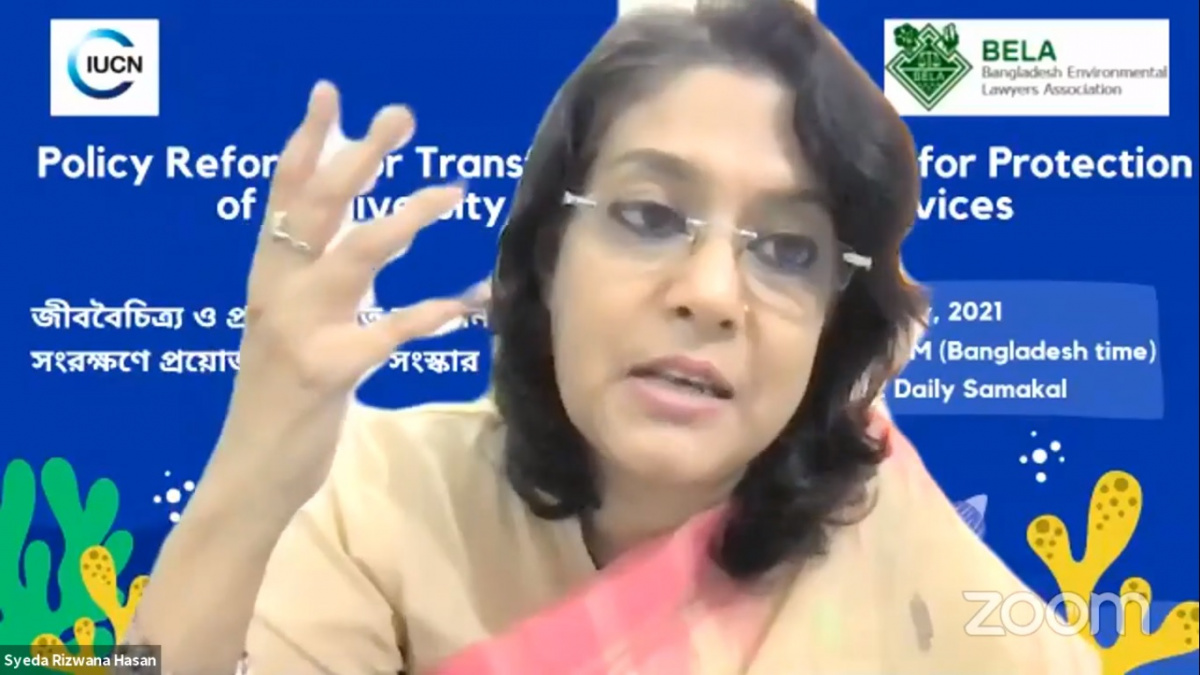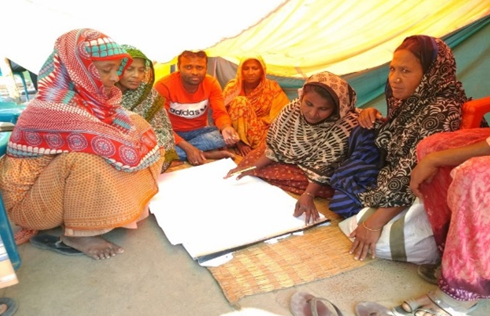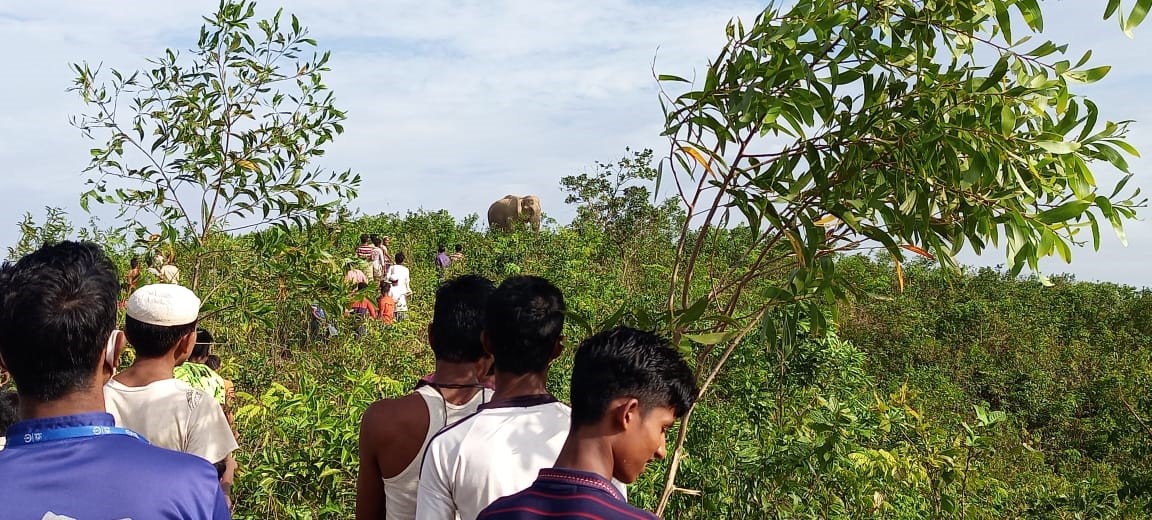Policy Reforms are Necessary for Transformative Changes in Protecting Biodiversity and Ecosystem Services in Bangladesh
IUCN Bangladesh in collaboration with Bangladesh Environmental Lawyers Association (BELA) organized a webinar on "Policy Reforms for Transformative Changes for Protection of Biodiversity and Ecosystem Services". IUCN presented the IPBES Global Assessment Report on Biodiversity and Ecosystem Services- summary for policy makers and multiple recommendations were highlighted for protecting the biodiversity of Bangladesh in light of IPBES report.
The theme of the World Biodiversity Day of this year, "We’re part of the solutions", featured the vital role of humans in the protection of biodiversity and nature. The slogan was a continuance of the momentum generated last year by the UN under the over-arching theme, "Our solutions are in nature", highlighting biodiversity remains as the answer to several sustainable development challenges. However, the present epidemic has once again reminded us of the nature's close relationship with people. It pledged the necessity of an environment-friendly development that promote the protection of nature and human well-being. It is to consider that biodiversity should not only be conserved for today but also considering the need and right of the future generations.
The Chief Guest of the webinar was Mr. Saber Hossain Chowdhury, M.P., Chairman, Parliamentary Standing Committee of Ministry of Environment, Forest and Climate Change, and was facilitated by Ms. Syeda Rizwana Hasan, Executive Director of BELA. Representatives from various public and private organizations, including environmentalists, academicians, researchers, development workers, journalists were also present in the discussion.
Dr. Rashed-Al-Mahmud Titumir, Chairperson, Bangladesh National Committee of IUCN emphasized on nature-based solutions and discussed about the present context of multiple natural resources and several degrading ecosystems of Bangladesh. He recommended that the government should take actions to link local knowledge to global scientific evidences to adopt various strategies towards biodiversity conservation and nature’s protection.
Mr. Raquibul Amin, Country Representative of IUCN Bangladesh presented the ‘IPBES Global Assessment report on Biodiversity and Ecosystem Services: The summary for the policymakers’ at the webinar. He highlighted the key messages of the IPBES report and emphasized the necessity to conserve nature in Bangladesh. He stated, "Biodiversity loss, ecosystem degradation, climate change and species extinction have accelerated at a higher rate over the years. As per the IUCN Red List of Threatened Species, around 24 percent of the animals and plants of Bangladesh are under threat of extinction, while globally it is 28 percent. It is thus time to take actions and strategies to implement the policies and laws and mitigate the challenges"
During the panel discussion, Mr. Pavel Partho, Director, Education, Culture & Diversity of Bangladesh Resource Center for Indigenous Knowledge (BARCIK) pointed out multiple conflicting cases of policies that are negatively impacting agriculture, biodiversity and land in Bangladesh. He suggested that the definition of agricultural land should be precisely defined in the ‘Agricultural Land Protection and Land Use Act, 2015’. He also stated, "A national community-led biodiversity register should be established; specific management strategies for the 30 agroecological zones should be implemented in Bangladesh; a regional research and protection center should be developed for the protection of agricultural lands, hydrological regions, and biodiversity hotspots; and, most importantly, humans should be considered as an important part of the definition of biodiversity in the National Biodiversity Act, 2017."
The former Executive Director of Arannayk Foundation, Mr. Farid Uddin Ahmed referred to a Global Watch report and stated “During the pandemic, deforestation did not stop, and the area that is suffering the most is Chattogram Hill Tracts (CHT).” He also highlighted the misconception of the shifting cultivation (Jhum) in the CHT, where the main problem is the unsustainable pattern of fallow lands and not the cultivation system itself. It is rather an integral part of the culture and norm of indigenous community. He also talked about small forests of CHT, watersheds and canals which are highly important for the wildlife and other species. He suggested, "Any forest management plan in the CHT should integrate people to sustain its biodiversity. It's also worth noting that CHT is a haven for a variety of wildlife. So, ensuring a balance is absolutely necessary to protect the nature and biodiversity of this hill tracts"
Mr. Ameer Md. Zahir, Principal Scientific Officer of the Soil Resources Development Institute (SRDI) stated, "Nearly 3.2 billion people are affected by land degradation worldwide, with 72 million in Bangladesh. One of the reasons for degradation is land erosion and landslides, and it happens mostly in hilly areas, particularly in CHT". He also mentioned that uncontrolled and illegal waste dumping should be stopped and emphasized the need to adopt advanced technology to protect soil health, and ensure people’s participation in the effective implementation of the policies.
Dr. Sayedur Rahman Chowdhury, Professor of the Institute of Marine Science at Chittagong University also discussed multiple conflicting approaches of policies and management related to marine biodiversity. He suggested that "there is a greater need to declare multiple" no-fishing zones"; the establishment of more Marine Protected Areas (MPAs) and the adoption of science- and ecosystem-based inclusive approaches to managing MPAs; the cessation of uncontrolled dumping of fuel and chemical waste into the ocean, which reduces seabed oxygen levels; and the improvement of coordination among the Department of Fisheries, Port Authority, and others.”
Dr. Ishrat Islam, Professor of the Department of Urban and Regional Planning at Bangladesh University of Engineering and Technology (BUET) stated, "Wetlands are one of the crucial regulators of biodiversity, particularly in the urban region". However, she mentioned that there is no balanced distribution of land among the urban population. She said, "People are flocking to the big cities but there is no implementation of laws to protect these wetlands. These are often being destroyed in the name of housing. Hence, everyone should be aware of this issue and play an active role in saving the city."
Emphasizing the need for formulating effective policies, Dr. Fahmida Khatun, Executive Director of the Centre for Policy Dialogue (CPD) stated that a change of mindset is necessary for the balance of nature. She added, "The ownership and beneficiaries of natural resources should be analyzed along with calculating the carrying capacity of the ecosystems for effectively managing natural resources. An extensive economic valuation of natural capital and exploration of effective economic tools (such as: tax, incentives) are also important. Nonetheless, proper coordination mechanism should be developed among various governments and other entities to ensure nature’s protection. "
Echoing the comments of keynote presenter and panelists, the Chief Guest of the webinar, Mr. Saber Hossain Chowdhury stated, "To mitigate the policy gaps and initiate reforms, we primarily require a clear vision about the future development of this country and the presence of nature’s concern in it. The biggest law of Bangladesh is the Constitution, where article 18A clearly states that the state shall protect, improve and safeguard the natural resources of Bangladesh. However, even though there are multiple policies and acts in this country, we often fail to address the environmental concerns properly. Hence, it is necessary to develop a roadmap of the implementation plan for environmental protection. Moreover, the risks of climate change in Bangladesh are well recognized and more actions are needed in Bangladesh. Hence, it is also important to take future steps to implement the "planetary emergency" at the national and ground level, along with protecting nature and biodiversity. "
In this regard, he also provided four recommendations: (1) Review of the existing policies and acts (2) Identifying how effective these policies are; (3) Detecting the conflicting areas and gaps of the policies and; (4) Formulating strategies to implement them properly. He also highlighted the need to conduct environmental accounting and valuation of natural resources to reflect their significance in the policy reforms. Moreover, he suggested developing a mechanism to gather various research from different parts of the country to formulate future strategies with enriched data and information.
At the end, Ms. Syeda Rizwana Hasan said that the current trend of development is destructive, anti-human and anti-nature. Criticizing the bad side of tourism, she stated that "Saint Martin's Island has many establishments, and this will result in the extinction of natural characteristics of the island. Similarly, by promoting tourism in Ratargul swamp forest, we are destroying its natural features. Hence, we should walk towards an economy that prioritizes the environment."
This web-story is written by Farah Anzum, Programme Assistant, IUCN Bangladesh
